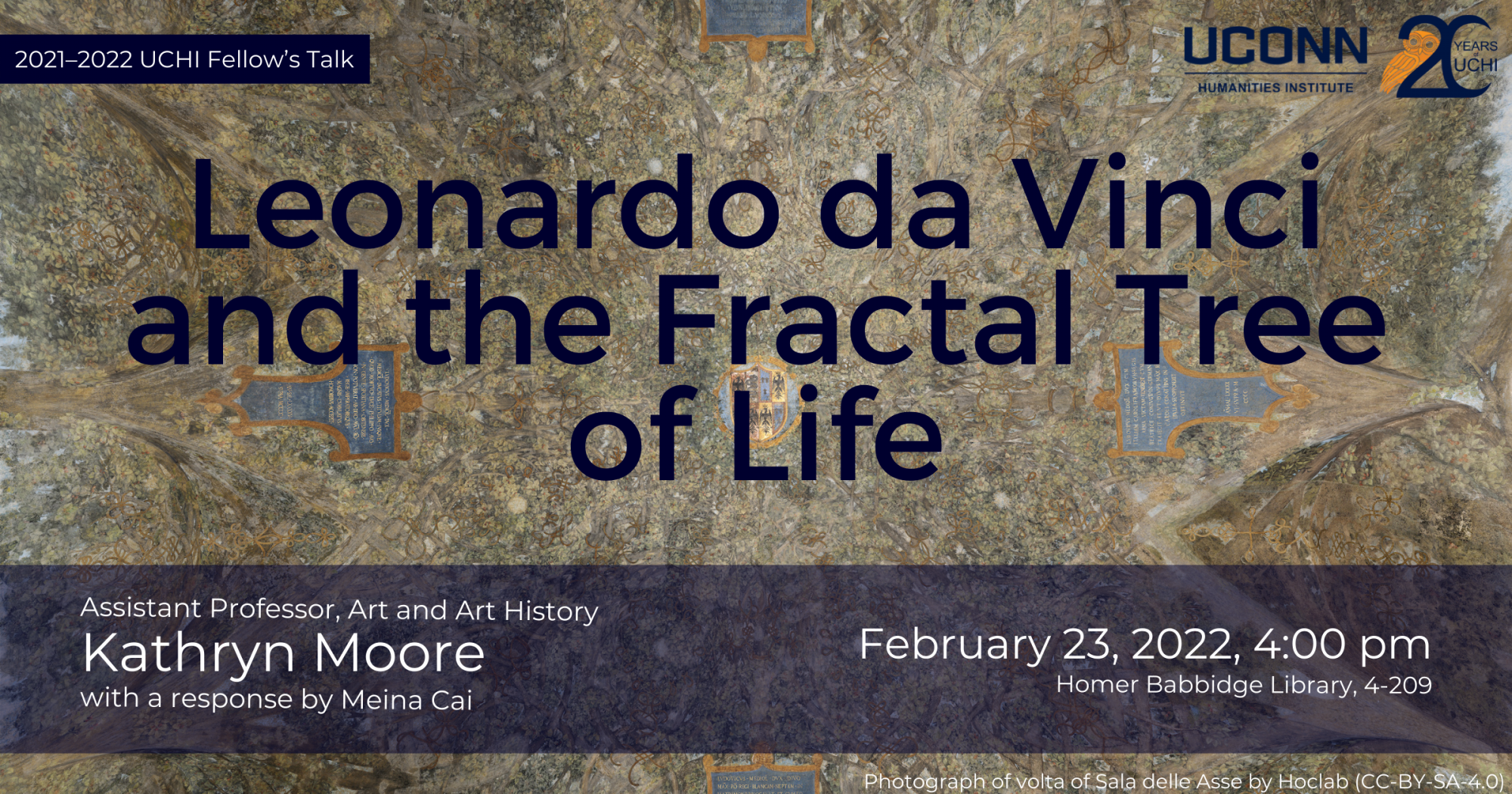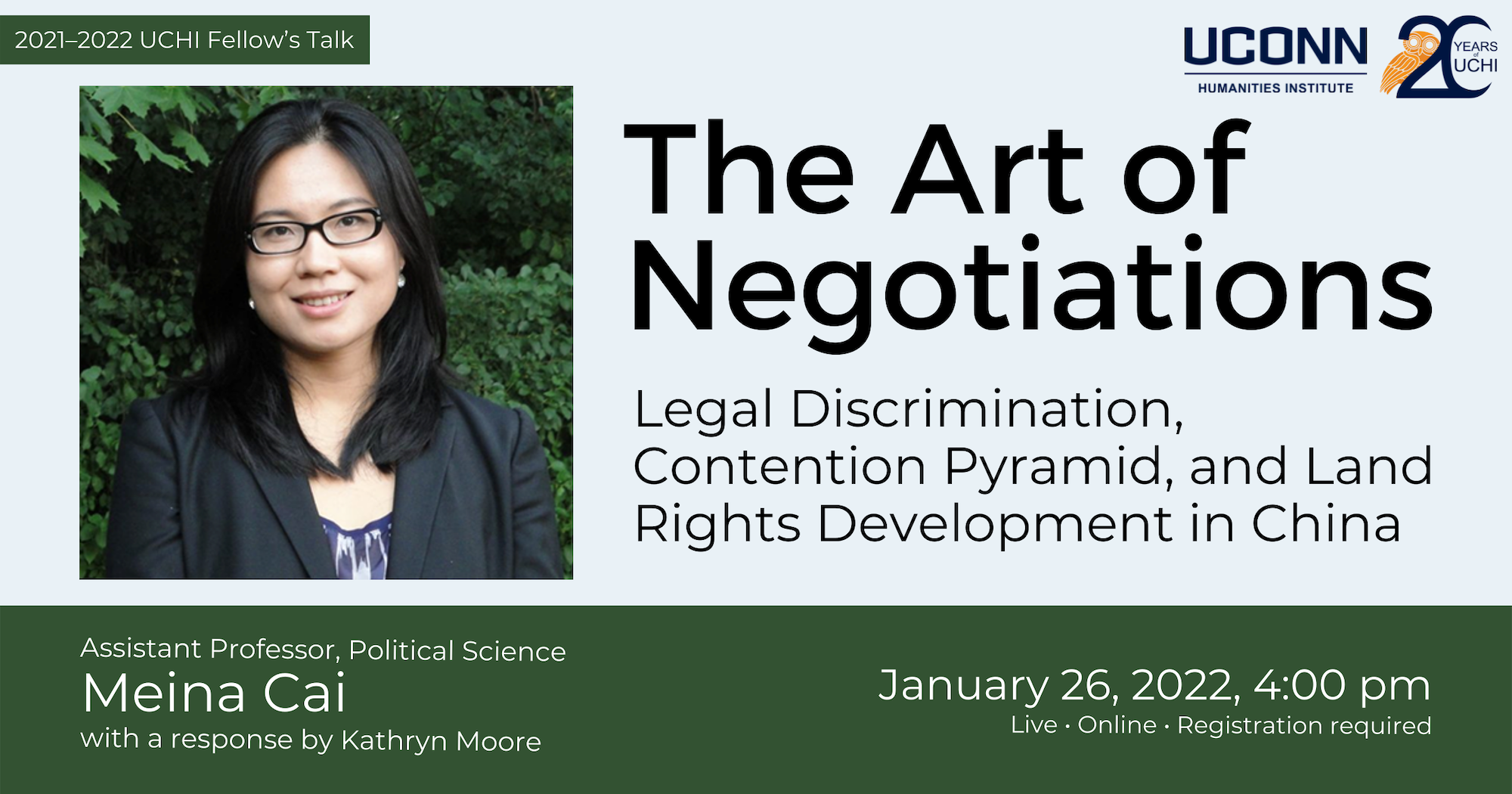Leonardo Da Vinci and the Fractal Tree of Life
Kathryn Moore (Assistant Professor, Art and Art History, UConn)
with a response by Meina Cai (Political Science, UConn)
Wednesday, February 23, 2022, 4:00pm, HBL 4-209
Add to Google calendar Add to Office 365 calendar Add to other calendar
The event will also be livestreamed with automated captioning.
This paper will explore the relationship between Leonardo da Vinci’s theories of the geometry of dynamic systems in nature and his artistic output, from c. 1497 until his death in 1519. Working in various media, from his frescoes depicting an artificial garden in the Sala delle Asse and related knot engravings, to his various drawings of geometry and anatomy in his notebooks, Leonardo visualized aspects of complexity beyond verbal description. In these various contexts, the fractal tree of life emerged as a primary model for natural systems that grow over time, from the microcosm of an individual human organ to the macrocosm of the earth.
Kathryn Blair Moore, Assistant Professor of Art History at the University of Connecticut, researches in the medieval and Renaissance periods in Europe and the Mediterranean region. Her book, The Architecture of the Christian Holy Land: Reception from Late Antiquity through the Renaissance (Cambridge University Press, 2017), focused upon the architectural legacy of Jerusalem and the Holy Land more generally. With Hasan-Uddin Khan, she is co-editor of The Religious Architecture of Islam (Brepols, 2021 and 2022). Her second monograph focuses upon arabesques in a European context. She has been a fellow of Harvard University’s Villa I Tatti and the American Academy in Rome.
Meina Cai is an Assistant Professor of Political Science and Asian/Asian American Studies Institute at UConn. Her research focuses on the political economy of development and institutions. She is currently working on land property rights, urbanization, and rural governance in China. She is a UCHI fellow in 2021–2022.
Access note
If you require accommodation to attend this event, please contact us at uchi@uconn.edu or by phone (860) 486-9057. We can request ASL interpretation, computer-assisted real time transcription, and other accommodations offered by the Center for Students with Disabilities.



